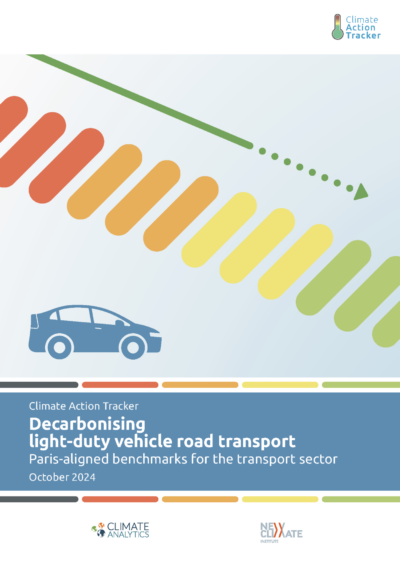Publications
Share


Briefings
We have produced factsheets for Australia, Brazil, China, the EU, India, Indonesia and USA showing 2030 and 2035 greenhouse gas emission reduction milestones for each jurisdiction to align with the Paris Agreement’s 1.5°C goal – both including and excluding land use, land-use change and forestry.

Peer-reviewed Papers
This study presents a new dataset of annual temperature projections for different overshoot pathways (when the 1.5 °C of global warming limit is exceeded). The data offers a unique opportunity to study local and regional climate change impacts of a range of overshoot scenarios, including when temperature thresholds might be exceeded, and by how much.

Peer-reviewed Papers
This study in Nature show that definitions of net zero now in widespread use will not actually stop global warming. The paper demonstrates that relying on natural carbon sinks, such as in forests or oceans, to 'offset' ongoing fossil fuel emissions will lead to continued warming.

Reports
Despite an escalating climate crisis marked by unprecedented wildfires, storms, floods, and droughts, the Climate Action Tracker annual global temperature update shows global warming projections for 2100 are flatlining, with no improvement since 2021. The aggregate effect of current policies set the world on a path toward 2.7°C of warming.

Briefings
The Climate Action Tracker provides updated 1.5ºC compatible benchmarks for the transport sector for the world as a whole and for seven individual countries; the US, EU, China, India, Brazil, South Africa and Indonesia.

Reports
The 2024 edition of UNEP’s Emissions Gap Report shows how much higher nations must aim. To get on a least-cost pathway for 1.5°C, emissions must fall 42 per cent by 2030, compared to 2019 levels. G20 nations, particularly the largest-emitting members, would need to do the heavy lifting.